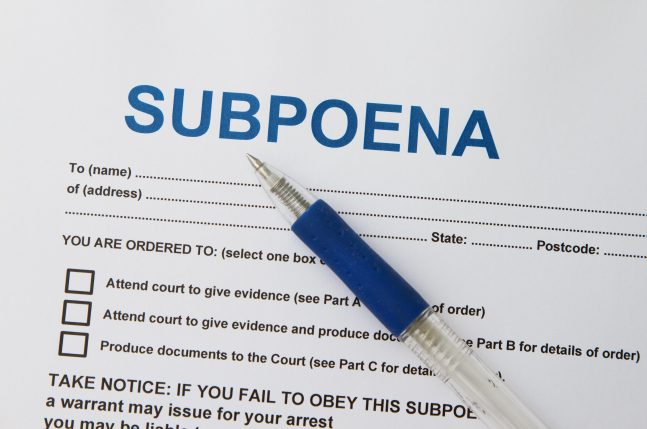Legal Articles
Loan Agreements “Payable on Demand”
March 19th, 2014 by | Court Disputes, Debt Collection, Finance & Securities
To the intelligent layman, the phrase in a loan agreement stating that the monies loaned are “payable on demand” suggests that the right to sue arises only after a demand is actually made. Naturally, a lawyer will tell you it is more complicated than that. For a variety of reasons, some purely historical, “payable on… Read more »
Mutual Trust and Confidence in the Employment Contract
March 12th, 2014 by | Court Disputes, Employment
In a decision of the Federal Court of Australia on 6 August 2013 (Commonwealth Bank of Australia v Barker [2013] FCAFC 83) the majority stated that an implied contractual term of mutual trust and confidence was part of the law of contract in Australia. A contract is a legal bargain between parties that has various… Read more »
Compensation for Employment Unfair Dismissal
March 12th, 2014 by | Court Disputes, Employment
If an employee is found to have been unfairly dismissed, the Fair Work Act 2009 empowers the Fair Work Commission to award compensation, if reinstatement is inappropriate (as it almost always is) and if compensation is appropriate in the circumstances. The maximum amount is set as the highest amount earned or which the dismissed employee… Read more »
Contract by (Unilateral) Mistake
February 11th, 2014 by | Court Disputes
Courts can set aside contracts on a number of grounds: the terms may be illegal, a party may have entered into the deal through fraud or misrepresentation, and so on. Sometimes the Court will intervene where there has been a mutual, fundamental mistake or misunderstanding. In some circumstances the Court can also correct Contracts. But… Read more »
No Win No Fee Lawyers – Traps for Legal Clients
January 30th, 2014 by | No Win No Fee Lawyers
WHAT ‘NO WIN NO FEE LAWYERS’ ACTUALLY MEAN ‘No Win No Fee’ Tips and Traps You’ve read it in the paper, seen it on TV, heard it on the radio: Lawyers in Adelaide claiming that they will take on your case, ‘No win, no fee.’ It sounds very tempting from a financial perspective. The offer suggests you… Read more »
Winding up a Partnership: Considerations for the Disenchanted
December 16th, 2013 by | Business Sale & Purchase, Commercial Transactions, Court Disputes
People carrying on business in common for profit are in Partnership. It is an old and historically successful business model, although more businesses today incorporate as a limited liability corporation. The unwritten essence of a partnership is trust between partners and when trust no longer remains, the end of a partnership becomes a real possibility. A… Read more »
Receiving a Court Subpoena
October 31st, 2013 by | Court Disputes
When someone can testify as a witness or has documents relevant to a legal action, a party can ask the Court to issue them with a subpoena. This is a Court order for them to attend Court at a certain time and provide relevant evidence. A subpoena can be to testify personally (subpoena ad testificandum)… Read more »
“We Won’t Go To Court” Arbitration Clauses
October 17th, 2013 by | Commercial Transactions, Court Disputes
A familiar term of many contracts is what lawyers call a “Scott v Avery” (Scott v Avery (1856) 5 HLC 811) clause. This is a clause saying the parties to the contract, who have a dispute arising from the contract, agree in advance that neither will bring an action in Court until arbitration has been… Read more »
Can Courts Correct Contracts?
October 9th, 2013 by | Commercial Transactions, Court Disputes
While the Courts won’t re-draw a legal document to improve it, they will, in certain cases, correct the document (“rectification”) if it clearly doesn’t set out what was intended. This power exists in relation to a range of legal documents, some only of which are mentioned here. Contracts If the contracting parties agreed to something… Read more »
Untrustworthy Trustees
September 12th, 2013 by | Commercial Transactions, Court Disputes, Wills & Estate Planning
Trusts are appropriate legal structures in many circumstances. However even a well thought out trust structure supported by an excellent trust deed will fail the settlor’s aims if the trustee is untrustworthy. What is a Trust? A Trust is an arrangement where X holds or controls property for Y. In this case X… Read more »
What To Do When a Purchaser Doesn’t Settle a Land Sale Contract
August 29th, 2013 by | Conveyancing, Property & Leases
A buyer who fails to settle on the agreed date is, on the face of it, in breach of a land sale contract. As vendor, you will need to consider whether you want to insist that the deal be completed (by sending a Notice to Complete or even seeking a Court order for Specific Performance… Read more »
How to Deal With a Statutory Demand
July 29th, 2013 by | Court Disputes, Debt Collection
The Corporations Act allows a creditor to issue a statutory demand to a corporate debtor. It is an extremely effective debt collection process where there is no dispute (other than payment). The golden rule is to deal with a statutory demand immediately. We often receive cries for help after a failure to address the… Read more »
Tendered in Full Satisfaction
July 19th, 2013 by | Court Disputes, Debt Collection
In business, you may receive a cheque that is short of the amount you invoiced, with an accompanying note stating words to the effect “this amount is tendered in full and final satisfaction of your invoice numbered…” The suggestion is that by accepting the lesser amount in these circumstances, you ‘waive’ the rest or agree… Read more »
Getting Your Money Back When It’s Your Fault You Lost It
June 29th, 2013 by | Court Disputes, Debt Collection
The law can help you in a number of ways when your rights have been violated. When, for example, you pay for something and don’t get it delivered as agreed, or it isn’t what was agreed, or it is broken, you have contractual and statutory rights. But what about a case where you have no… Read more »
Land Tax not Payable by Tenant if Act Applies
June 26th, 2013 by | Commercial Transactions, Property & Leases
In South Australia, the Retail and Commercial Leases Act 1995 provides that a retail shop lease cannot require a tenant to pay land tax but a landlord’s liability for land tax can be taken into account in assessing the amount of rent. The Act does not always apply and in certain circumstances land tax can be… Read more »




















